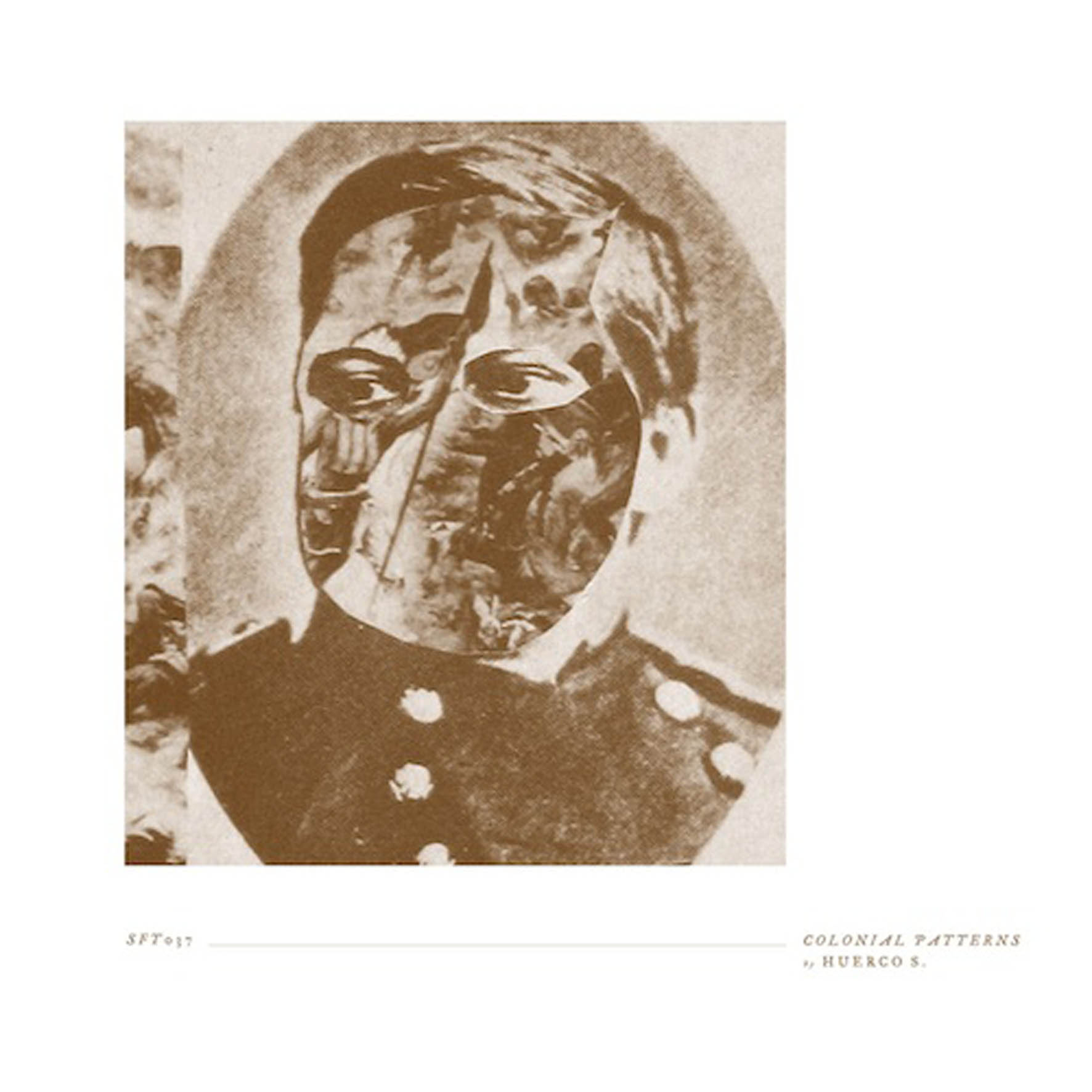Huerco S., "Colonial Patterns"
 This is the debut full-length from Brian Leeds' Huerco S. nom de guerre, one of the most exciting projects to emerge from burgeoning scene surrounding Opal Tapes.  While Leeds does not necessarily offer up anything truly novel, his skill at seamlessly blending together industrial clang, dub techno, hissing Tim Hecker-style ambiance, Boards of Canada-esque warped wooziness, and minimalist underground dance is quite peerless.  This is easily one of my favorite albums of the year.
This is the debut full-length from Brian Leeds' Huerco S. nom de guerre, one of the most exciting projects to emerge from burgeoning scene surrounding Opal Tapes.  While Leeds does not necessarily offer up anything truly novel, his skill at seamlessly blending together industrial clang, dub techno, hissing Tim Hecker-style ambiance, Boards of Canada-esque warped wooziness, and minimalist underground dance is quite peerless.  This is easily one of my favorite albums of the year.
The most immediately striking aspect of Colonial Patterns for me was that it is a mixture of several recognizable and predictable influences that sound so completely natural together that it seems astonishing that no one has thought to combine them before now.  After my initial bewilderment, however, I began to appreciate the incredible amount of craftsmanship and nuance needed to pull off such a feat successfully.  The base ingredients are simple: warmly crackling and sibilant synths; a slow, pulse-like thump; locked-groove-like repetition; and some subtly hallucinatory "damaged tape" effects.  What Leeds does with those various threads is extremely impressive though, as even the haziest bits are sharply realized and there is no clutter or superfluous sound to be found anywhere.  Colonial Patterns is about as deliberate and unerringly chiseled as an album can be, yet never feels suffocatingly or lifelessly overwrought.
Leeds' complete control and thoughtful construction even extends to the sequencing, as he breaks up the album with several different types of pieces, all of which somehow feel thematically and aesthetically consistent.  For example, there are a few great pieces in the aforementioned "Tim Hecker" vein, like the beautiful (but brief) "Chung-Kee Player" and "Monks Mound," which eschew beats for dreamily hissing and pulsing bliss.  Other pieces, such as "Skug Commune" and "Ragtime USA," boast strong enough beats and hooks to qualify as potential singles, but are still understated enough to blend with the rest of the album.  Still other pieces–most of them, actually–recall the late '90s golden age of dub techno artists like Pole and Kit Clayton.
The best and most distinctive pieces, however, are the ones in which Leeds manages to seamlessly blend all of those threads (as well as some others) together at once.  My favorite among them is "Quivira," which deftly blends a lurching, metallic industrial rhythm with warm, scratchy synth swells and obsessively see-sawing blurts.  Another particularly unique piece is "Annagramme of my Love," which embellishes its throbbing beats with little more than crackling static and a buried, stuttering vocal loop.  Brian also does warped-sounding mindfuckery quite well, though only the delirious and wobbly "Prinzif" fully highlights that knack.
Colonial Patterns is the rare album in which I thoroughly enjoy almost every song, no matter how long or short it is or which direction it takes.  The worst thing that I can say about it is that the quality dips a bit near the end, as both "Canticoy" and "Angel (Phase)" allow merely decent ideas unfold much longer than necessary.  Still, 12 excellent songs out of 14 is one hell of an impressive success rate, particularly when the listener is as jaded as I am.  Leeds clearly set out to deliver a flawlessly realized, perfectly flowing masterpiece and came as close as I possibly could have hoped for (uniformly brilliant albums being a truly rare phenomenon in the single-driven world of underground dance).
 



